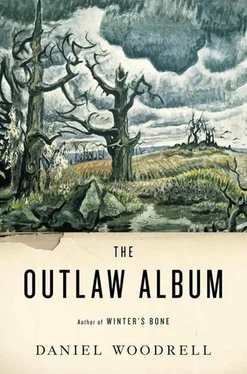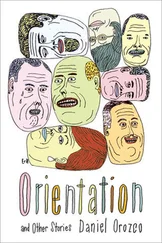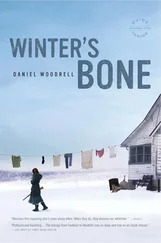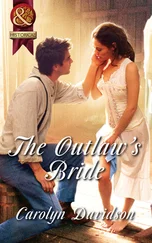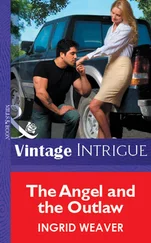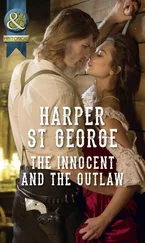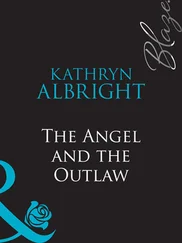“Old Roedel,” he said. “You must be sad that Younger has gone. You may be all that is left now.” I turned to see who spoke. It was Harvey Ball, a man of two-shot killing size, as death would have to scream its presence a while to make it known to the ends of his form. “Let me buy you a drink.”
“I am not a drinking man,” I said. “You know this.”
Ball had that confidence that horsey size gives a man. He reached out to grab my shoulder. “Naw. Come on now, Roedel. You must’ve split a jug with Black John Ambrose of an evening.” I shook his hand off but he took no hints. “William C. Quantrill, the Jameses and Youngers, and Arch Clements and Pitt Mackeson—you tellin’ me they were Baptist men? True Vine Pentecostal and would not drink?”
“I am telling you this—in many a jug there is a trigger, and where there are triggers, fingers multiply.”
“You have plenty of fingers from the history of it,” Ball said. “Did yours work dry?”
Karl or Kurt nudged me in the calf but did not speak. We began to walk on but Ball did not move from our path.
“I whip mules that buck me,” I said. “Beware.”
As we trekked on, Ball said something in a stingy voice that was to the point of, why hadn’t his elders hanged me with the other bushwhackers, or cut me into finger candy like Arch Clements.
It is a good question, and I can put no answer to it.
We dropped the driftwood in the back room of the house. I did my sleeping in that room, as well as my carving. It was as near to being out of my son’s house as I could be without sacrificing the benefits of stove heat.
My son, Jefferson, was in a stir over his evening paper. The donnybrook in Europe was of great importance, he said. The important wars are fought at home, among friends, I said. He said they will be killing Germans wholesale in this one, and didn’t that please me? I am an American of sorts, I said. Germans are not my breed. You miss the point wide, he said.
My room safeguarded me from his ignorance. Behind the closed door I began to carve, I knew not what. Wood flakes curled about my feet and gathered on my clothes and hair. My knife turned in patterns I could not foresee, and something I did not expect would come of it. The worst and best in this life are that way.
Tea trays, I have made, and tankards with handles like an antelope’s head, and hat racks and lazy Susans. But this night it was war and Coleman Younger and this land where Germans can change their names but not their ways that governed my blade by ghostly touch. It had been war enough for any man, less those blood-demons who choose man’s form as disguise, and it was this I would show, if my hand be true, my blade honest in its cuts.
When hunger hailed me I dropped the knife and entered my son’s house. Jefferson, Herta, and the boys were gathered in the main room, huddled beneath a tall glowing globe of light. Herta was reading aloud from Alcott, and the boys’ rapt attention to such childishness insulted me. I remembered a time when their age would have had consequences, for they were mostly over twelve. I stood alone while they all sat. Soon Herta ceased reading. She began to look to Jefferson, he to her, the boys to me.
“You boys,” I said, “have reached what we called the killing age.”
Jefferson turned shocked, as if two and two had retreated into three, then mad. He stood and addressed me. “Your melancholy past is not meant for the ears of the young.”
“No,” I said. My feet carried me from the room, my son glaring at me. “You are wrong.” He does not love me for he is German-proud, and believes that had time and history allowed for it, it could have been him as easily as another. He knows—and he is right. “No, it can be meant only for them. Only for them.”
II. I Have Been Found in History Books
We rode across the hillocks and vales of Missouri, hiding in uniforms of Yankee blue. Our scouts were out left flank and right flank, while Pitt Mackeson and me formed the point. The night had been long and arduous, the horses were lathered to the withers, and dust was caking mud to our jackets. There had been whiskey through the night, and our breaths blasphemed the scent of early-morning spring. Blossoms began a cautious bloom on dogwood trees, and grass broke beneath hooves to impart rich, green odor. The Sni-A-Bar flowed to the west, a slight creek more than a river, but a comfort to tongues dried gamy and horses hard rode. We were making our way down the slope toward it, through a copse of hickory trees full of housewife squirrels gossiping at our passing, when we saw a wagon halted near the stream.
There was a man holding a hat for his hitched team to drink from, a woman, a girl in red flannel, and a boy who was splashing about at the water’s edge, raising mud. The man’s voice boomed to scold the boy for this as he had yet to drink.
“Dutchman,” Mackeson said, then spit. “Goddamn lop-eared Saint Louis Dutchman.” Mackeson was American and had no use for foreigners, and little for me. He had eyes that were not set level in a bent face, so that he saw you top and bottom in one glance. I watched him close in gunplay, and kept him to my front.
“Let us bring Black John up,” I said.
I turned in my saddle and raised my right hand above me, waved a circle with it, then pointed ahead. Black John brought the boys up, he taking one column of blue to the right, Coleman Younger taking the other to the left.
The Dutchman heard the rumble of hooves but had no chance to escape us. We tightened our circle about the wagon, made certain the Dutchman was alone, then dismounted.
The family crusted around the Dutchman, not in fear, but to introduce themselves. Our uniforms were a relief to them, for they did not look closely at our mismatched trousers and our hats that had rebel locks trailing below them.
Most of the boys led their mounts to the stream, opened whiskey bottles, and generally tomfooled about near the water. Black John Ambrose, Mackeson, me, and a few others confronted the Dutchman. He offered his hand to Black John, whose stiff height, bristly black curls, and hard-set face made his leadership plain. Black John spit, as Americans are wont to do when confident of their might.
“Wilhelm Schnellenberger,” the Dutchman said, his hand finally dropping back to his side.
I spit, then pawed the gob with my boot.
“Dutchman,” Mackeson said. “Lop-eared Dutchman.”
“Are you secesh?” Black John asked, his voice ever so coaxing. “Are you southern man?”
“No, no, no,” the apple-headed Dutchman answered. His eyes wandered among us. He smiled. “No secesh. Union man.”
The woman, the girl, and the boy nodded in agreement, the boy beginning to study our uniforms. Some of the fellows were kicking a stick to and fro, trying to keep it in the air, whiskey to the winner. It was a poetry moment: water, whiskey, no danger, a friendly sun in the sky, larks and laughter.
“Stretch his neck,” Black John said. “And let’s be sharp about it.”
The woman had some American, and the Dutchman had enough anyway, for when she flung her arms about him wailing, he sunk to his knees. He was mumbling to his god, and I was thinking how his god must’ve missed the boat from Hamburg, for he was not near handy enough to be of use in this land.
“What’s he babblin’?” Mackeson goaded me.
“He is praying to Abe Lincoln,” I said.
Coleman Younger had a rope, but he would not lend it as it was new, so we used mine. Mackeson formed it into a noose with seven coils rather than thirteen for he had no inclination to bring bad luck onto himself. Thirteen is proper, though, and some things ought to be done right. I raised this issue.
“You do it then, Dutchy,” he said, tossing the seven-coiled rope to me. “Bad luck’ll not change your course, anyhow.”
Читать дальше
